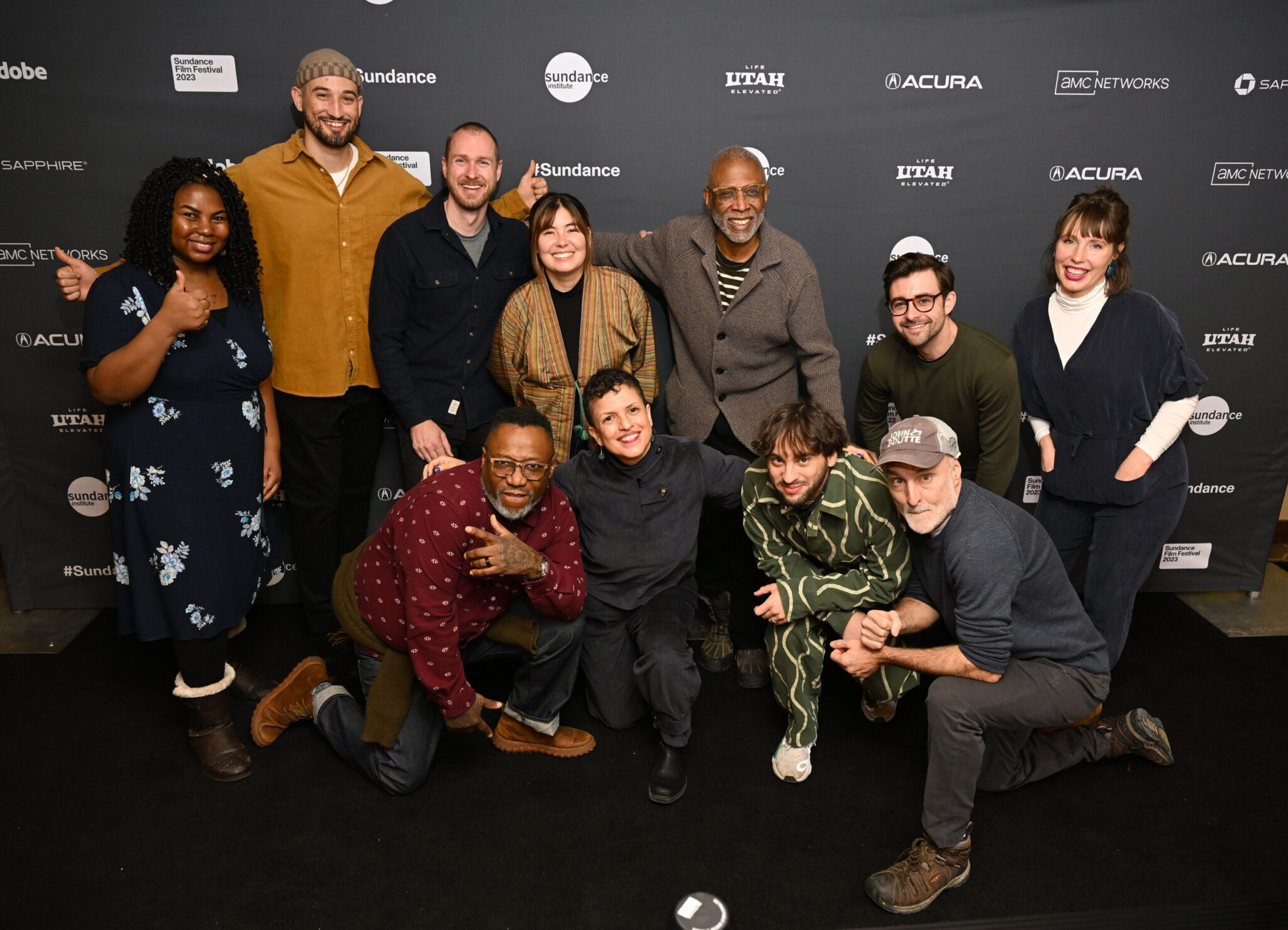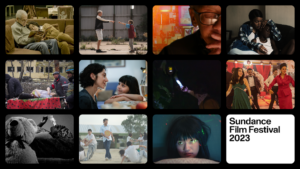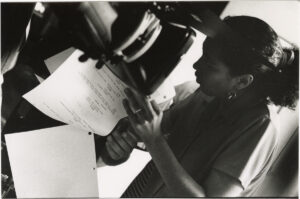PARK CITY, UTAH – JANUARY 20: (Top Row L–R) Patrice Bowman, Jarobi Moorhead, Greg Harriott, Ayana Enomoto-Hurst, Director Joe Brewster, Chris Pattishal and Terra Long (Bottom Row L–R) Regi Allen, Director Michèle Stephenson, Samora Pinderhughe and Fred Helm attend the 2023 Sundance Film Festival “Going to Mars: The Nikki Giovanni Project” Premiere at Prospector Square Theatre on January 20, 2023 in Park City, Utah. (Photo by Jim Bennett/Getty Images)
By Peter Jones
It isn’t always easy to tell when Nikki Giovanni is speaking metaphorically. In Going to Mars: The Nikki Giovanni Project, which premiered at the 2023 Sundance Film Festival on January 20, the award-winning poet often talks about how Black people, particularly Black women, would make the ideal astronauts for a life-altering trip to the Red Planet.
“In our blood is space travel,” she says. “… The unknown, the darkness.”
Space travel wouldn’t be all so different from the Middle Passage, Giovanni argues, referring to the terrifying and physically confining trips that Africans would be forced to take across the Atlantic during the height of the slave trade. The white Americans of the New World may have just as well been Martians, the poet says.
Giovanni was among the foremost writers to emerge from the Black Arts Movement, and her unique vision for a future of true equality — the reality and metaphor of space travel — has inspired everyone from Oprah Winfrey to the scientists who named a bat species after her.
Going to Mars travels the worlds of thought and time as the documentary tracks the poet’s flights by way of poetry readings, candid at-home footage, and contemporary and archival interviews, including an enlightening televised back-and-forth with acclaimed writer James Baldwin.
The film uses Giovanni’s own work to craft a nontraditional poetic narrative, in which the poet effectively tells her story through her own writing.
“We began saying we were going nontraditional — and then COVID happened and it really went nontraditional,” co-director Joe Brewster explained to the audience after the screening. “… We decided that we would try to do something a little more impressionistic.”
Co-director Michèle Stephenson says it was really just a function of honoring Giovanni’s work.
“From the very beginning, we wanted this to be just in her words, using that constraint and that focal point,” she continues. “… We actually started cutting [the film] in stanzas, so it was more like looking at it [as] a poem itself.”
Film editor Terra Jean Long adds that the literary approach created an interesting and challenging editing process.
“The inspiration was really listening to [Giovanni],” she recalls. “It was a lot of trial and error, and moving through things, and also the forward thrust and backwards, and kind of telescoping through time. I don’t know how we did it, but we made it.”
Part of that process was acknowledging that Giovanni was not always an easy interview, and the evidence of that was not necessarily left on the cutting-room floor.
“We don’t want to hide that there was tension. We want to embrace it,” Stephenson says.
Appropriately enough, the poet’s history is told against the backdrop of the civil rights movement, as events such as the murders of Emmett Till and four Black girls at the 16th Street Baptist Church create a tragic canvas for Giovanni’s work and a personal memory that may have slipped into a kind of survival mode in the face of repeated, unspeakable horrors.
“I was blessed with a poor memory,” the poet admits in the film.
When asked where she was when Rev. Martin Luther King Jr. was assassinated, Giovanni can’t even begin to recall. Perhaps other planets haven’t gone as mad as this one.
If nothing else, the poet says, a trip to Mars would present another reason — and opportunity — to change the world.
Giovanni was unable to attend the screening but recorded a message for the audience via Stephenson’s cellphone.
“I’m sorry I wasn’t able to make it to join in the celebration of the premiere of Going to Mars,” she said. “I’m here in Atlanta, though, raising a glass to the film. I think Michèle and Joe did an excellent job in creating with my work… I want to thank Sundance for choosing this as one of their films.”
Part of that process was acknowledging that Giovanni was not always an easy interview, and the evidence of that was not necessarily left on the cutting-room floor.
“We don’t want to hide that there was tension. We want to embrace it,” Stephenson says.
Appropriately enough, the poet’s history is told against the backdrop of the civil rights movement, as events such as the murders of Emmett Till and four Black girls at the 16th Street Baptist Church create a tragic canvas for Giovanni’s work and a personal memory that may have slipped into a kind of survival mode in the face of repeated, unspeakable horrors.
“I was blessed with a poor memory,” the poet admits in the film.
When asked where she was when Rev. Martin Luther King Jr. was assassinated, Giovanni can’t even begin to recall. Perhaps other planets haven’t gone as mad as this one.
If nothing else, the poet says, a trip to Mars would present another reason — and opportunity — to change the world.
Giovanni was unable to attend the screening but recorded a message for the audience via Stephenson’s cellphone.
“I’m sorry I wasn’t able to make it to join in the celebration of the premiere of Going to Mars,” she said. “I’m here in Atlanta, though, raising a glass to the film. I think Michèle and Joe did an excellent job in creating with my work… I want to thank Sundance for choosing this as one of their films.”







